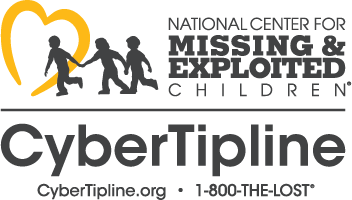Finding a Trusted Adult
Finding a Trusted Adult
Play the video to learn more about finding a trusted adult.
Hey everyone! Today I want to talk a little bit about finding a trusted adult to talk to if you or someone you know are being trafficked. A trusted adult is someone who can provide advice, answer difficult questions, share their values and/or faith traditions, and help you especially if you’re in an abusive, hurtful, or destructive situation or relationship. A trusted adult will give you the support and help you need and deserve. You may already know a trusted adult or be thinking of someone you know who would be good to talk to. Sometimes it’s as easy as turning to your Dad or Mom, but if your parents don’t fit that criteria, there are other adults who can help. If someone doesn’t come to mind right away, don’t worry. It took me a little time to find my trusted adult. So, I want to share some tips to help you find your trusted adult. Choose someone you think is a good listener and won’t be judgmental. Look for someone that you have confidence in and that you think will know what actions to take. This is a short list of people who might be that trusted adult for you:
- Parent, grandparent, or other relative
- Teacher, especially a teacher who seems to understand the problem(s) you’re going through
- Coach, sports instructor, or athletic director
- Guidance counselor
- School administrator such as a principal or vice principal
- School security officer
- Club or activity leader
- A friend’s parents
- Religious leader like your pastor, youth pastor, chaplain, rabbi, imam, or elder in your religious institution
- Police officer or other law enforcement official
- ROTC or military instructor
- Social worker or community worker
- Doctor or nurse that you like
One way to find your trusted adult is to make a list of adults in your life you could potentially talk to. You don’t have to talk to them, just put them on a list to see what options you have. List every adult you can think of who may be able to help you. Once you have a full list you can narrow it down to the one or two people that seem like the best choice.
If you don’t know what to say, I would suggest writing your problem down. This way you can practice telling them before you approach them. The most important part is actually making contact and talking. You can prepare them by saying there’s something you want to talk about and you need advice or it’s something important. My advice would be to start off the conversation by saying "I would like to talk to you about something very important” or “I need your help with a problem.” This lets the trusted adult know that there’s something important going on in your life and you trust them with that information.
At any time during this training, call the National Center for Missing & Exploited Children Hotline at 1-800-THE-LOST (1-800-843-5678) to speak to someone about anything in this training that concerns you.

To report an incident online, fill out a report here: CyberTipline
